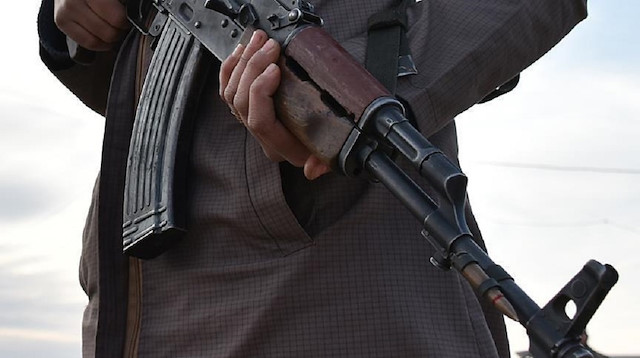Unidentified Bandits stormed apartment of Plateau State Commissioner of Environment, Usman Bamaiyi, in the wee hours of Saturday, abducting his wife and daughter.
It was unclear if the commissioner was at home when the Bandits gang invaded the house in Gindiri community of Mangu Local Government Area of the state.
The spokesperson of the Plateau State Police Command, ASP Ubah Gabriel, who confirmed the incident said men of the Command were already on the trail of the abductors to ensure safe rescue and release of the victims.
This is coming barely one week after two pastors were abducted in the area.
READ ALSO: Lagos Police recover AK- 47, Pump Action Guns
A source within the community, Sani Musa, revealed that the Gindiri general area is under siege by bandits.
The Plateau attack comes less than a week after the son of a serving commissioner was gunned down by bandits
“Bandits” have emerged as the new bogeyman for insecurity in Nigeria, joining a long (and still growing list) that includes Boko Haram, cultists, herdsmen, kidnappers and militants. In different parts of the North-West, from Birnin-Gwari in Kaduna to Tsafe in Zamfara, bandits are offered as the trope for an intolerable carnage, and the inexplicable haplessness of a Federal Government that doesn’t appear to care for much else in an election season. As this lamentable state metastasises, it may be worthwhile to reflect on banditry in Nigeria.
In different parts of Nigeria, banditry is used to describe different variants of outlawry. In reality, the usage conflates two underlying problems – ineffective law enforcement in Southern Nigeria, and the crisis of ungoverned spaces in Northern Nigeria. Since Independence, successive governments have had to confront variants of these trends. The evidence over time suggests a link between governance, its failures, and banditry.
READ ALSO: Chidinma Ojukwu: Multiple Stabs Found On Ataga’s Neck – Co-Founder Testifies
In This Present Darkness, his history of organised crime in Nigeria, Stephen Ellis traces post-independence banditry in Nigeria to “shortly before the civil war, when government broke down in some parts of the Western Region and there was a blurred line between political violence, crime, and organised insurgency.” At the end of the war, the military regime of Gowon failed to manage demobilisation. As demobilised combatants from the war returned home to nothing to do, outlawry became appealing.
In Southern Nigeria, which comprises a mere 29% of Nigeria’s nearly 924,000 km² of landmass, urban banditry ensued. Unsurprisingly, armed robbery in built-up areas of the country was an early manifestation. An early exponent of this was Ishola Oyenusi, a high-school dropout who chose to be called “the Doctor” and terrorised Lagos at the end of the Civil War. In response, the military government introduced mandatory death by firing squad for convicted armed robbers. The first set of public executions took place in front of Bar Beach, in Victoria Island, Lagos on April 26, 1971. Less than four and a half months later, on September 8,1971, Oyenusi was executed at the same location.

